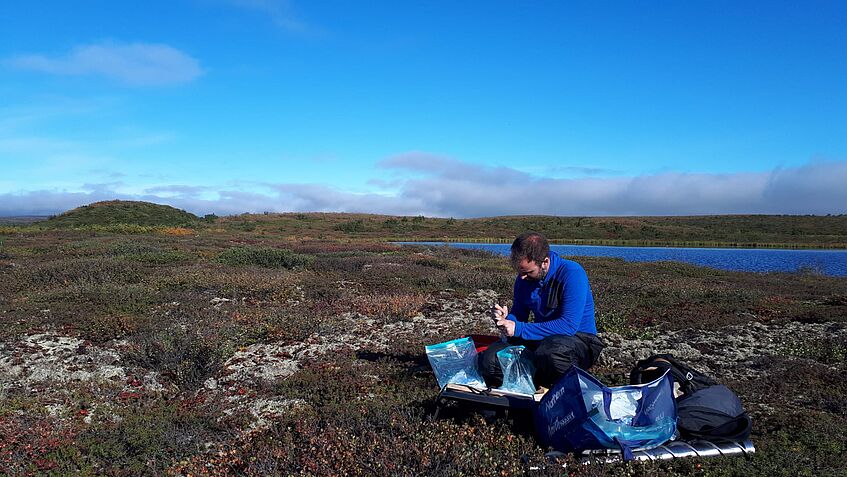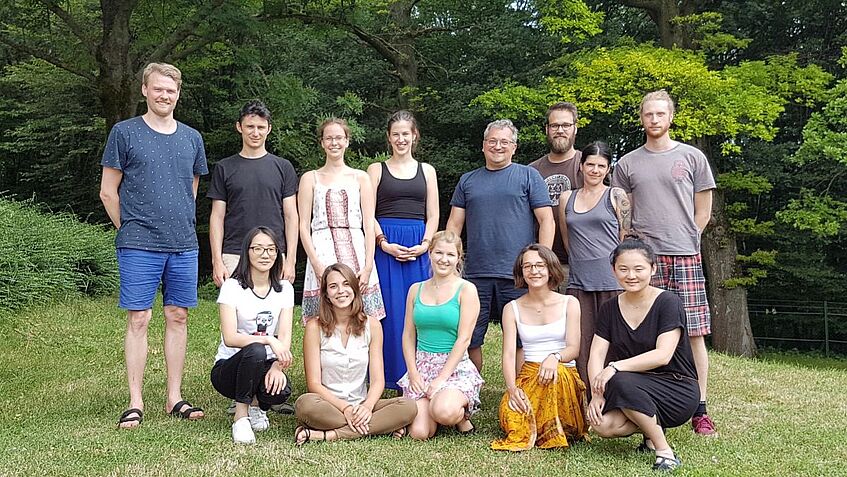Univ.-Prof. Dr. Andreas Richter

Head of the Centre for Microbiology and Environmental Systems Science
Head of the Division of Terrestrial Ecosystem Research
☎ +43 1 4277 91260
Microbial communities are key components of all global biogeochemical cycles and play a central yet poorly understood role in climate change biology. Andreas Richter’s group investigates how growth and turnover of microbial communities control the deconstruction and mineralisation of organic matter in terrestrial ecosystems in current and future climates. The group has redefined and expanded the concept of microbial carbon and nitrogen use efficiency, linking it to ecological stoichiometry theory.
Andreas also pioneered the development of methods to estimate microbial growth and carbon use efficiency based on stable oxygen isotopes. Andreas’ research group has extensively worked on soil organic matter storage in arctic ecosystems and permafrost-climate feedback, as well as in deep soils from the tropics to arctic. They also explore the interactive effects of future climate conditions and climate extremes on microbial processes, community composition, and plant-microbe interactions.
Research Topics
- Carbon use efficiency, growth and turnover of microbial communities
- Arctic soil carbon storage and the permafrost-climate feedback
- Microbial communities, SOM composition and the breakdown of organic matter
- Ecological stoichiometry and nitrogen and phosphorus cycling
- Effect of climate change and elevated CO2 on soil processes

Research Projects
Collaboration with other international projects
- IMBALANCE P – Effects of phosphorus limitation on Life, Earth system and Society
We contribute to IMBALANCE P by analysing gross microbial nitrogen and phosphorus processes in soils along N/P gradients at two rainforest sites in French Guayana (Paracou and Nouragues). In addition we analyse microbial carbon and nitrogen use efficiencies and conduct laboratory incubation experiments with different nitrogen, phosphorus and carbon amendments to understand microbial limitations in those soils.
Investigated by: Andreas Richter
Cooperation partner: Josep Peñuelas, CREAF, Spain; Ivan Janssens, University of Antwerp, Belgium; Michael Obersteiner, IIASA, Austria
- FORHOT - Natural soil warming in natural grasslands in Iceland
We contribute several microbial measurements to the unique field experiment in FORHOT. Specifically, we ask the question whether the short-term (weeks to years; i.e., the duration of laboratory incubation experiments) and long-term (decades-century) temperature response of soil organic matter breakdown varies with regard to microbial carbon use efficiency, growth and turnover.
Investigated by: Andreas Richter, Tom Walker
Cooperation partner: Bjarni D. Sigurdsson, Agricultural University of Iceland
- The Jena Experiment – Exploring mechanisms underlying the relationship between biodiversity and ecosystem functioning
The Jena Experiment is studying biodiversity effects in experimental grassland communities. We contribute to this study by investigating biodiversity effects on microbial microbial carbon, nitrogen and phosphorus cycling. The overall aim of our project part is to elucidate the mechanisms behind the diversity effects on C, N and P cylcling, focusing on (i) microbial decomposition of organic carbon and nitrogen, (ii) element use efficiencies and (iii) microbial growth and turnover.
Investigated by: Andreas Richter, Judith Prommer
Cooperation partner: Wolfgang Weisser, University of Jena and Xavier Le Roux, INRA, Lyon, France
- CLIMAITE - Climate Change Effects on Biological Processes in Terrestrial Ecosystems
We contribute estimates of microbial nitrogen use efficiency and gross protein depolymerization rates to this experiment.
Investigated by: Andreas Richter, Birgit Wild
Cooperation partner: Per Ambus, University of Copenhagen




